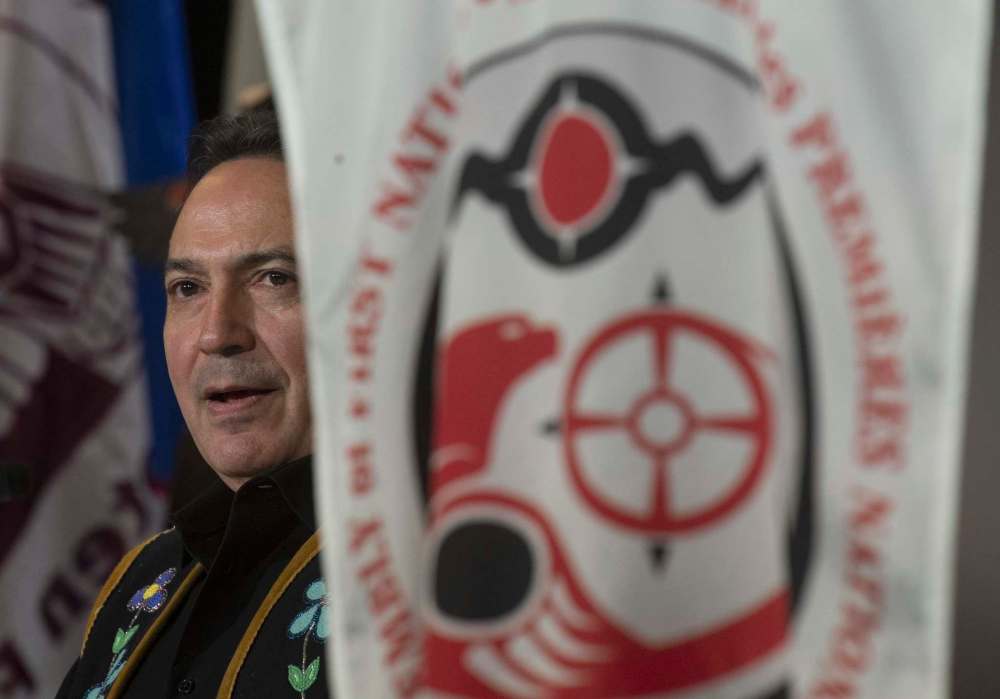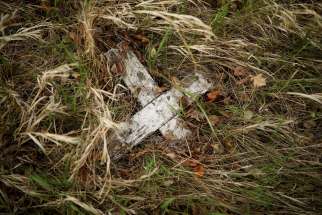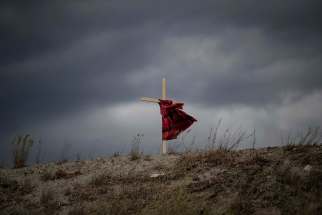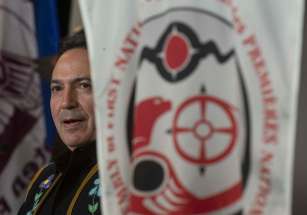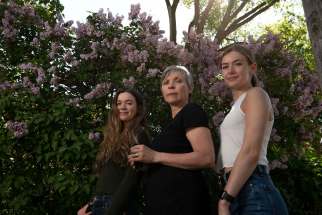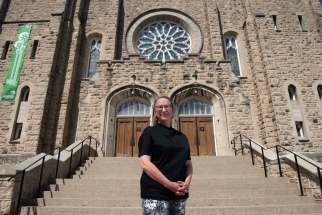AFN leadership slate faces lengthy battle online
Read this article for free:
or
Already have an account? Log in here »
To continue reading, please subscribe:
Monthly Digital Subscription
$0 for the first 4 weeks*
- Enjoy unlimited reading on winnipegfreepress.com
- Read the E-Edition, our digital replica newspaper
- Access News Break, our award-winning app
- Play interactive puzzles
*No charge for 4 weeks then price increases to the regular rate of $19.00 plus GST every four weeks. Offer available to new and qualified returning subscribers only. Cancel any time.
Monthly Digital Subscription
$4.75/week*
- Enjoy unlimited reading on winnipegfreepress.com
- Read the E-Edition, our digital replica newspaper
- Access News Break, our award-winning app
- Play interactive puzzles
*Billed as $19 plus GST every four weeks. Cancel any time.
To continue reading, please subscribe:
Add Free Press access to your Brandon Sun subscription for only an additional
$1 for the first 4 weeks*
*Your next subscription payment will increase by $1.00 and you will be charged $16.99 plus GST for four weeks. After four weeks, your payment will increase to $23.99 plus GST every four weeks.
Read unlimited articles for free today:
or
Already have an account? Log in here »
Hey there, time traveller!
This article was published 04/06/2021 (1649 days ago), so information in it may no longer be current.
The Assembly of First Nations has announced seven candidates have filed nomination papers to lead the national advocacy organization.
Following its June 3 deadline, there is no clear frontrunner — amidst a slate of the most regionally-based candidates in AFN history.
Under COVID-19 pandemic restriction protocols, chiefs from First Nations across Canada will vote online or by phone for a new leader July 7. National Chief Perry Bellegarde announced in December he would not seek re-election for the role he has held since 2014.
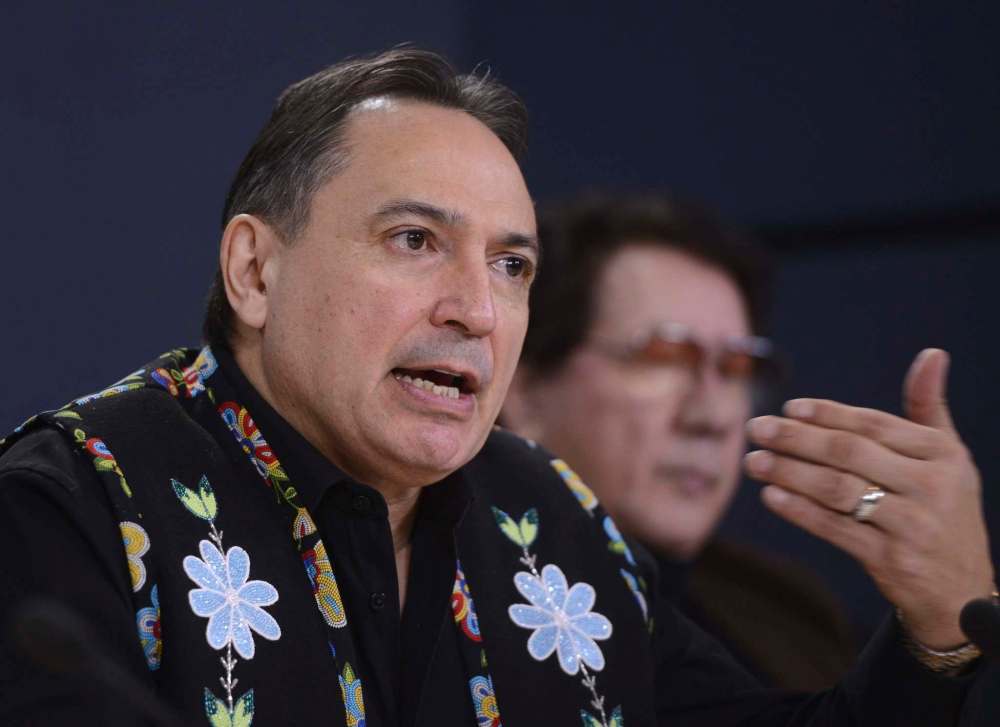
To win, a candidate must obtain 60 per cent of votes in attendance — approximately 381 of 634 ballots (if all participate).
If no one obtains the 60 per cent, the lowest candidate is dropped, convention-style, and the vote is reheld until someone crosses the threshold or all but one candidate concedes.
AFN elections are all about regionality, with chiefs in provinces often voting as a block for whichever candidate appeals to their region. The biggest blocks of votes are in B.C. (nearly one-third of all ballots) and Ontario (one-fifth).
The Prairies (Alberta, Saskatchewan, and Manitoba) also often vote together, representing one-quarter of all ballots.
Usually, a national chief candidate will build support in their own territory and then, during the campaign, try to convince other blocks of chiefs to join them.
Some years, this has meant elections go all night. It happened in 2009, when, the morning of the next day, Bellegarde (supported mostly by Prairie chiefs) conceded to Shawn Atleo (supported primarily by B.C. and Ontario) after neither could obtain 60 per cent support after seven votes.
This year could conceivably see a repeat.
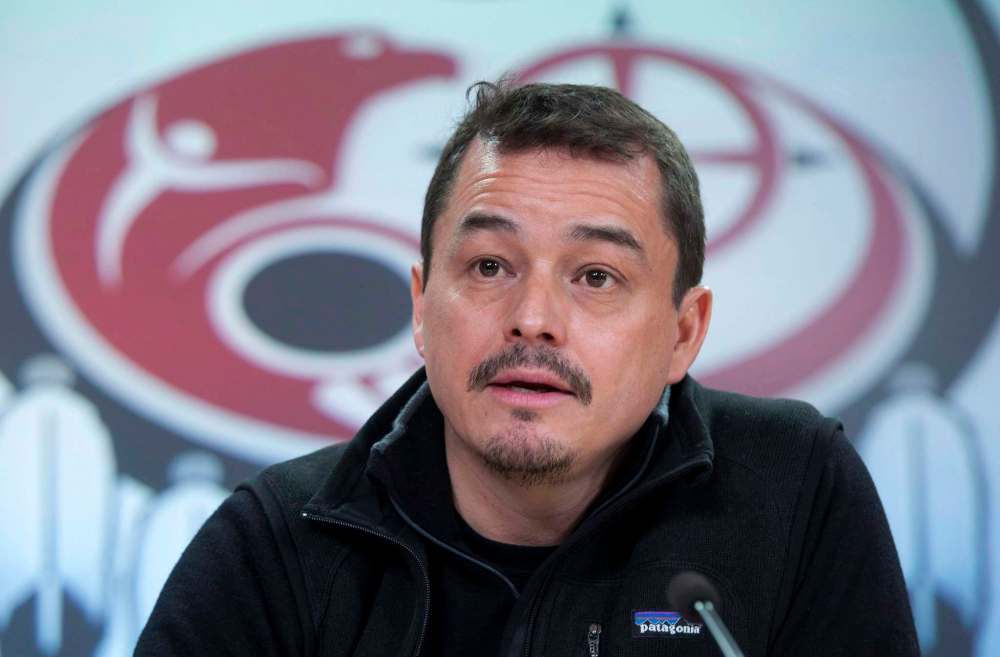
Unlike some AFN elections, which had well-known leaders with wide appeal (such as Phil Fontaine, Ovide Mercredi, Matthew Coon Come) lead virtually start to finish, this year’s candidates are relatively new to the national stage.
On one level, this is incredible, with four male and three female candidates spanning seven First Nations in five provinces. The race also boasts the second-largest slate of female national chief candidates in the organization’s near-40-year history (2012 had four).
On the other hand, the election is all online. There is no in-person, convention-style vote — where chiefs meet candidates and make a decision — meaning this is a battle that will be fought online via websites, email, and social media.
The candidates are interesting, and all promise to institute big changes at the AFN.
RoseAnne Archibald (Taykwa Tagamou Nation) is AFN Ontario regional chief and has received notoriety for criticizing the organization as rampant with sexual and gender discrimination and unsafe for women. She has called for AFN’s next national chief to be a female, and is leading what APTN recently framed as a “#MeToo reckoning.”
Alvin Fiddler is grand chief of Nishnawbe Aski Nation, which represents 49 First Nations in Northern Ontario. Best-known for battling boil-water advisories, suiciade epidemics, and advocating for treaty rights in some of Canada’s most marginalized communities, Fiddler was recently endorsed by Globe and Mail columnist Tanya Talaga.
Kevin Hart, AFN regional chief of Manitoba, has made his mark as an advocate for culture and Indigenous control of child welfare. Hart (Nisichawayasihk Cree Nation) has been controversial but held some major portfolios at the AFN, including overseeing the organization’s response to the issue of murdered and missing Indigenous women and girls.
Reginald Bellerose has been Muskowekwan First Nation (Saskatchewan) chief for 16 years and has spoken widely on residential school issues. Bellerose also has received endorsement from the Federation of Sovereign Indigenous Nations, so conceivably holds all 70 chief votes from his territory.
Reginald Bellerose has been Muskowekwan First Nation (Saskatchewan) chief for 16 years and has spoken widely on residential school issues.
Lee Crowchild is the former xakiji (chief) of Tsuutʼina First Nation (Alberta) and has previously been an advocate for economic growth on First Nations. He is also a former athlete and has worked in media.
Cathy Martin is a band councillor for Listuguj Mi’gmaq (Quebec) and has worked in developing Indigenous educational initiatives and financial accounting for First Nations.
Jodi Calahoo-Stonehouse, the only non-politician on the slate and by far the most tech-saavy, youthful candidate, is from Michel First Nation (Alberta), host of the popular radio show Acimowin and executive director of the Yellowhead Indigenous Education Foundation.
A glaring absence is no national chief candidate from B.C. — likely due to the fact many were waiting to hear if former Liberal cabinet minister Jody Wilson-Raybould was going to run. For months, rumours abounded, but by Thursday, no papers had been filed.
If she had, Wilson-Raybould would have been the clear forerunner.
But there is no such figure, so expect a long series of votes July 7, and a winner announced later. Perhaps much later.
niigaan.sinclair@freepress.mb.ca

Niigaan Sinclair is Anishinaabe and is a columnist at the Winnipeg Free Press.
Our newsroom depends on a growing audience of readers to power our journalism. If you are not a paid reader, please consider becoming a subscriber.
Our newsroom depends on its audience of readers to power our journalism. Thank you for your support.

